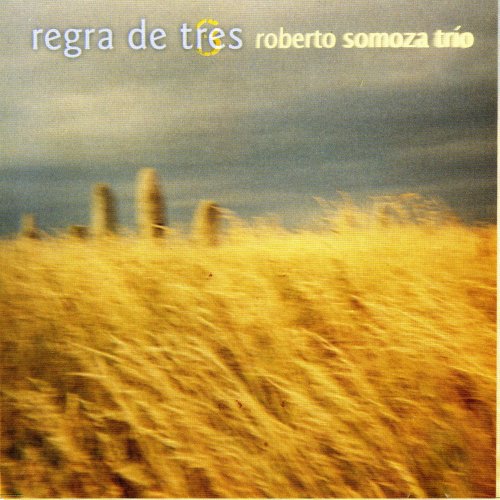Elisabeth Schwarzkopf, Dietrich Fischer-Dieskau, Otto Klemperer - Brahms: Ein Deutsches Requiem (2012) [Hi-Res]

Artist: Elisabeth Schwarzkopf, Dietrich Fischer-Dieskau, Otto Klemperer, Philharmonia Orchestra & Chorus, Philharmonia Orchestra
Title: Brahms: Ein Deutsches Requiem
Year Of Release: 1962 / 2012
Label: Warner Classics / Erato
Genre: Classical
Quality: FLAC (tracks) [96kHz/24bit]
Total Time: 1:08:57
Total Size: 1.35 GB
WebSite: Album Preview
Tracklist:Title: Brahms: Ein Deutsches Requiem
Year Of Release: 1962 / 2012
Label: Warner Classics / Erato
Genre: Classical
Quality: FLAC (tracks) [96kHz/24bit]
Total Time: 1:08:57
Total Size: 1.35 GB
WebSite: Album Preview
Johannes Brahms (1833 – 1897)
Ein Deutsches Requiem Op. 45
1. Ziemlich langsam - Selig sind, die da Leid tragen 10:01
2. Langsam, marschmassig - Denn alles Fleisch es ist wie Gras 14:30
3. Andante moderato - Herr, lehre doch mich 09:50
4. Massig bewegt - Wie lieblich sind deine Wohnungen 05:47
5. Langsam - Ihr habt nun Traurigkeit 06:52
6. Andante - Denn wir haben hie keine bleibende Statt 11:44
7. Feierlich - Selig sind die Toten, die in dem Herren sterben 10:14
It doesn't take long, listening to this recording of Brahms' Ein deutsches Requiem with Otto Klemperer leading the Philharmonia Orchestra and Chorus, to understand its iconic status as one of the outstanding recordings of the work. In the opening measures of the first movement, "Selig sind, die da Leid tragen," Klemperer creates an ethereally transparent texture that blossoms throughout the movement into a mood of luminous serenity. That quality is even more pronounced in the transcendent tranquility of the fourth movement, "Wie Lieblich sind deine Wohnungen." In the second movement, "Den alles Fleisch, es ist wie Gras," Klemperer cuts loose in the build up to the apocalyptic second choral statement of the theme, which has an overwhelmingly ominous power, a power that he summons again in the forceful sixth movement, "Denn wir haben keine bleibende Stadt." Klemperer handles the composers' tricky tempos shifts with complete assurance, so that they seem entirely inevitable. Throughout, Klemperer demonstrates his profound understanding of the musical and emotional richness and complexity of Brahms' masterpiece. The orchestra and chorus respond to his leadership with complete attentiveness and deliver nuanced and passionate performances. Baritone Dietrich Fischer-Dieskau's investment in the music is evident in his warm tone, shapely phrasing, and the dramatic urgency of his performance. Soprano Elizabeth Schwartzkopf's voice did not have all the bloom and flexibility of its prime, but she brings a floating lightness to her solo, "Ihr habt nun Traurigkeit." Produced by Walter Legge and engineered by Douglas Larter, the recording was state-of- the-art when it was recorded in 1961, and the 1997 digital remastering brings it to a standard that should satisfy most listeners. The sound is transparent in the quieter moments, and round and rich in the fuller sections, and always clear and clean. This recording is a must-have for fans of Brahms' Requiem and of outstanding choral performances. ~ Stephen Eddins
![Ex Novo Ensemble - OSVALDO COLUCCINO: Emblema (2018) [Hi-Res] Ex Novo Ensemble - OSVALDO COLUCCINO: Emblema (2018) [Hi-Res]](https://img.israbox.com/img/2026-02/22/ot6pocjri3hisq06iz4768yl5.jpg)


![Chris Forsyth's WHAT IS NOW - Both / And (2026) [Hi-Res] Chris Forsyth's WHAT IS NOW - Both / And (2026) [Hi-Res]](https://www.dibpic.com/uploads/posts/2026-02/1771839412_cover.jpg)


![Sinedades - De par en par (2026) [Hi-Res] Sinedades - De par en par (2026) [Hi-Res]](https://img.israbox.com/img/2026-02/23/k9xyrl2p7m3kmcwozolhfnu7a.jpg)

![Julian Lage - Scenes From Above (Japanese Edition Bonus Track) (2026) [SHM-CD] Julian Lage - Scenes From Above (Japanese Edition Bonus Track) (2026) [SHM-CD]](https://www.dibpic.com/uploads/posts/2026-02/1772029332_front.jpg)